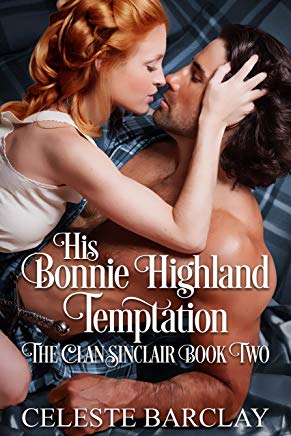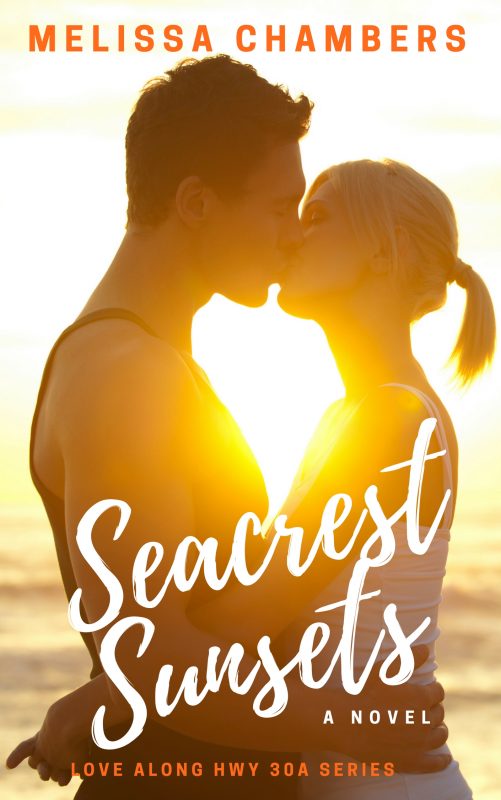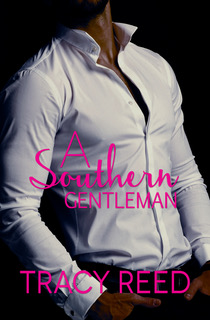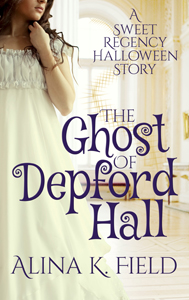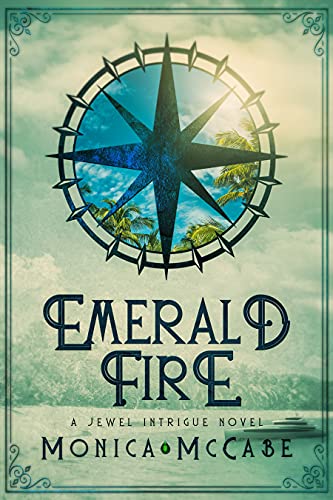A Fiction Writer’s Secret Weapon: Show, Don’t Tell
March 17, 2023 by marianne h donley in category Ages 2 Perfection Online Class, Online Classes tagged as Age 2 Perfection Online Class, Leslie J. Hall, Show Don't Tell
Presented by: Leslie J. Hall
Date: April 10 – 21, 2023 (two weeks)
Registration Closes: April 18, 2023
Pricing: A2P Member fee: $15
Non-A2P Member fee: $25
About the Workshop:
Most writers have heard the advice, Show, Don’t Tell. But what does it really mean and how do we use it in our stories? In this workshop, we will review the meaning of Show, Don’t Tell and discuss how this tool helps us connect with readers in a deeper way. We’ll discuss what ‘tell’ looks like and how to change it to ‘show’ using point of view and setting. We’ll look at Show, Don’t Tell in terms of character and character reactions. Great for any level of writer in any genre who wants their stories to be tighter and more impactful.
Workshop Goals:
• Understand what the phrase means for your story
• Learn to identify ‘telling’ prose
• Know how to convert ‘telling’ to ‘showing’
• How to use point of view to heighten Show, Don’t Tell
When it is okay to tell
About the Presenter:
Leslie J. Hall the author of the Kaitlyn Willis Road Signs mysteries, a humorous, PG-rated, amateur sleuth series starring a NW code enforcement officer. She also writes women’s fiction and in training to become a book coach. Leslie loves to speak, teach, and share her passion for writing with others.
When not writing, Leslie volunteers for writer-related events, leads Write Night (a weekly virtual facilitated critique group), teaches beginning writing at community colleges in continuing ed, laughs as much as possible, and when not doing all of that, hangs out at the beach whenever possible.
She lives in Bremerton, WA with her husband and her pandemic rescue cat, Mia. Learn more about Leslie’s writing and her classes at www.lesliejhall.com
0 0 Read moreLet me TELL you something…
June 12, 2017 by Denise M. Colby in category The Writing Journey by Denise Colby, Writing tagged as Contests, Denise Colby, feedback, Show Don't Tell I took a long walk this morning. Wrote an awesome blog post in my head. The entire time I wished I had my laptop to write down my thoughts. Let me tell you, it was awesome. Of course, as soon as I got home and started to actually write it, well…..the words came out differently. Not as witty. Not as eloquent. My punctuation was off. But trust me. The original in my head? It was awesome. I’m telling you.
I took a long walk this morning. Wrote an awesome blog post in my head. The entire time I wished I had my laptop to write down my thoughts. Let me tell you, it was awesome. Of course, as soon as I got home and started to actually write it, well…..the words came out differently. Not as witty. Not as eloquent. My punctuation was off. But trust me. The original in my head? It was awesome. I’m telling you.
See, my blog post was all about my feelings on the subject of telling vs showing. One of those things every fiction writer needs to learn to write a well-written novel. I apparently haven’t been able to figure it out yet. At least that’s what the latest round of contest remarks tell me.
Of course, I can’t show you their comments, so you’ll have to trust me when I tell you this.
So I took my walk to clear my head because somehow these comments have rattled me. I feel (again I’m telling you here) like giving up, stopping, throwing the entire book away. And I’m not sure what to do about it.
I’ve received lots of feedback over the past four years on my writing journey. I’m usually really good about taking it in stride and learning from it. But this time around it has punched me in the gut and taken all the motivation out of me.
And I’m not sure why.
Ironically, most of the feedback I’ve received, has been over the same set of pages. So really, the feedback isn’t just on my writing, it’s on the however many other contest evaluators and writer friends who have taken their time to give me their honest feedback. Each time I’ve made adjustments and changes, I’ve felt like I’ve gotten closer and closer to a solid beginning. So I find it interesting that what’s been pointed out makes my pages sound worse than where I was before.
I’m telling you, it’s enough to make me really confused.
So as I wallow in my own negative emotions, I reflect back to how I got here. Even in high school my English wasn’t great. I scored higher on my math portion of my SAT then my English. I can spell like the best of them, but making sure I’m staying in either present or past tense throughout the entire sentence is a challenge for me. As well as telling vs showing. That’s what I’m being told.
You’ve probably noticed it all in this post.
I do have a BA in Communication. I landed a great job out of college and my first two bosses were previous English teachers. Go figure. Every assignment I turned in came back with red marks everywhere. But I learned. By the time I went to graduate school to get my MBA, I scored higher on the English then the math. But since I embarked on this fiction writing journey I’ve learned something. Let me tell you – copywriting and fiction writing are two completely different things.
The writing I did in the business world mostly came in bullet points. I told people why they needed to buy a certain product. What that product could do for them and how it would benefit them. In catalogs, flyers, packaging, presentations and brochures. We had to be succinct and to the point. A customer needed to be able to know within a few seconds what this product was and what it could do for them. No room for interpretation, no room for feelings or fluff words as we called it. Just the point.
I was in charge of writing, proofing, and editing our products within our customer catalogs – for thousands of products. To create consistency with my team, I created a catalog copy strategy. Here’s what I instructed them:
For the actual copy block:
- Concise, no fluff words
- Benefit statements
- minimum 2 sentences, maximum 5 sentences
- Doesn’t have to be complete sentences
Example in bullet form of copy block:
- Benefit statement that helps to explain the product concept overall.
- Describe how the product is used.
- Suggest applications for the product.
- Other descriptions of the product including other features, color, size, quantity.
Now here I am writing a novel and my mind is trained in a completely different way. I’m having a difficult time writing the showing parts. I’m pulling my hair out trying to get it. I’m crying over the fact that I have 350 plus pages to go back and redo and think I have it correct, but then find out I don’t. (Did I do it? Showing? Wrong tense, though. Sigh.) I’ll keep trying but the task feels daunting.
So, I need someone to tell me what happens next? I’m stuck. Frozen. Not sure if I can keep going. I know, I know. I just need to keep plugging along. I guess that’s why I wrote this blog post. I needed an outlet to process things. And to write something that’s in my own words, my way and I don’t care what anyone else thinks about it. And when I circle back around to accept things and move on, I still have a manuscript where apparently I’ve been told I’m telling too much. I guess only time will tell if I can show them they were right or wrong.
Denise

Denise M. Colby loves learning about history and reading fun, uplifting, encouraging stories that cherish and warm the heart. Combining two of her loves, she is working on her first inspirational historical romance, featuring Olivia Carmichael, a young lady who loses everything, including her faith, travels to California to teach and finds love in many different forms along the way. Passionate about all types of stories – whether they are from songs, theatre, movies or novels, Denise loves sharing these passions with her husband and their three boys. You can follow along with Denise on her writing journey at www.denisemcolby.com
WEB CONTACTS
Website: www.denisemcolby.com
Blog: www.denisemcolby.com
Facebook: https://www.facebook.com/denisemcolbywrites/
Pinterest: pinterest.com/denisemcolby
Twitter: twitter.com/denisemcolby
6 0 Read moreAffiliate Links
A Slice of Orange is an affiliate with some of the booksellers listed on this website, including Barnes & Nobel, Books A Million, iBooks, Kobo, and Smashwords. This means A Slice of Orange may earn a small advertising fee from sales made through the links used on this website. There are reminders of these affiliate links on the pages for individual books.
Search A Slice of Orange
Find a Column
Archives
Featured Books
A SOUTHERN GENTLEMAN
"A woman walks into a crowded Manhattan bar and meets a nice southern gentleman." That sounds like the beginning of a bad joke or the beginning of an intriguing love story.
More info →EMERALD FIRE
Her family secret is stolen by pirates. His business is in jeopardy if he doesn’t find it.
More info →Newsletter
Contributing Authors
Search A Slice of Orange
Find a Column
Archives
Authors in the Bookstore
- A. E. Decker
- A. J. Scudiere
- A.J. Sidransky
- Abby Collette
- Alanna Lucus
- Albert Marrin
- Alice Duncan
- Alina K. Field
- Alison Green Myers
- Andi Lawrencovna
- Andrew C Raiford
- Angela Pryce
- Aviva Vaughn
- Barbara Ankrum
- Bethlehem Writers Group, LLC
- Carol L. Wright
- Celeste Barclay
- Christina Alexandra
- Christopher D. Ochs
- Claire Davon
- Claire Naden
- Courtnee Turner Hoyle
- Courtney Annicchiarico
- D. Lieber
- Daniel V. Meier Jr.
- Debra Dixon
- Debra H. Goldstein
- Debra Holland
- Dee Ann Palmer
- Denise M. Colby
- Diane Benefiel
- Diane Sismour
- Dianna Sinovic
- DT Krippene
- E.B. Dawson
- Emilie Dallaire
- Emily Brightwell
- Emily PW Murphy
- Fae Rowen
- Faith L. Justice
- Frances Amati
- Geralyn Corcillo
- Glynnis Campbell
- Greg Jolley
- H. O. Charles
- Jaclyn Roché
- Jacqueline Diamond
- Janet Lynn and Will Zeilinger
- Jaya Mehta
- Jeff Baird
- Jenna Barwin
- Jenne Kern
- Jennifer D. Bokal
- Jennifer Lyon
- Jerome W. McFadden
- Jill Piscitello
- Jina Bacarr
- Jo A. Hiestand
- Jodi Bogert
- Jolina Petersheim
- Jonathan Maberry
- Joy Allyson
- Judy Duarte
- Justin Murphy
- Justine Davis
- Kat Martin
- Kidd Wadsworth
- Kitty Bucholtz
- Kristy Tate
- Larry Deibert
- Larry Hamilton
- Laura Drake
- Laurie Stevens
- Leslie Knowles
- Li-Ying Lundquist
- Linda Carroll-Bradd
- Linda Lappin
- Linda McLaughlin
- Linda O. Johnston
- Lisa Preston
- Lolo Paige
- Loran Holt
- Lynette M. Burrows
- Lyssa Kay Adams
- Madeline Ash
- Margarita Engle
- Marguerite Quantaine
- Marianne H. Donley
- Mary Castillo
- Maureen Klovers
- Megan Haskell
- Melanie Waterbury
- Melisa Rivero
- Melissa Chambers
- Melodie Winawer
- Meriam Wilhelm
- Mikel J. Wilson
- Mindy Neff
- Monica McCabe
- Nancy Brashear
- Neetu Malik
- Nikki Prince
- Once Upon Anthologies
- Paula Gail Benson
- Penny Reid
- Peter Barbour
- Priscilla Oliveras
- R. H. Kohno
- Rachel Hailey
- Ralph Hieb
- Ramcy Diek
- Ransom Stephens
- Rebecca Forster
- Renae Wrich
- Roxy Matthews
- Ryder Hunte Clancy
- Sally Paradysz
- Sheila Colón-Bagley
- Simone de Muñoz
- Sophie Barnes
- Susan Kaye Quinn
- Susan Lynn Meyer
- Susan Squires
- T. D. Fox
- Tara C. Allred
- Tara Lain
- Tari Lynn Jewett
- Terri Osburn
- Tracy Reed
- Vera Jane Cook
- Vicki Crum
- Writing Something Romantic
Affiliate Links
A Slice of Orange is an affiliate with some of the booksellers listed on this website, including Barnes & Nobel, Books A Million, iBooks, Kobo, and Smashwords. This means A Slice of Orange may earn a small advertising fee from sales made through the links used on this website. There are reminders of these affiliate links on the pages for individual books.

